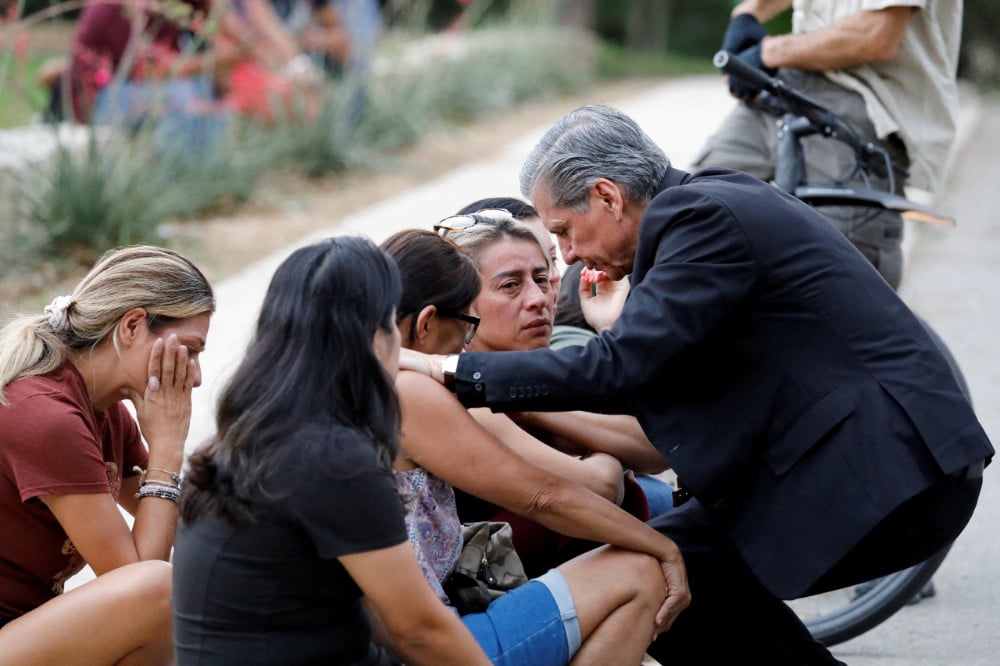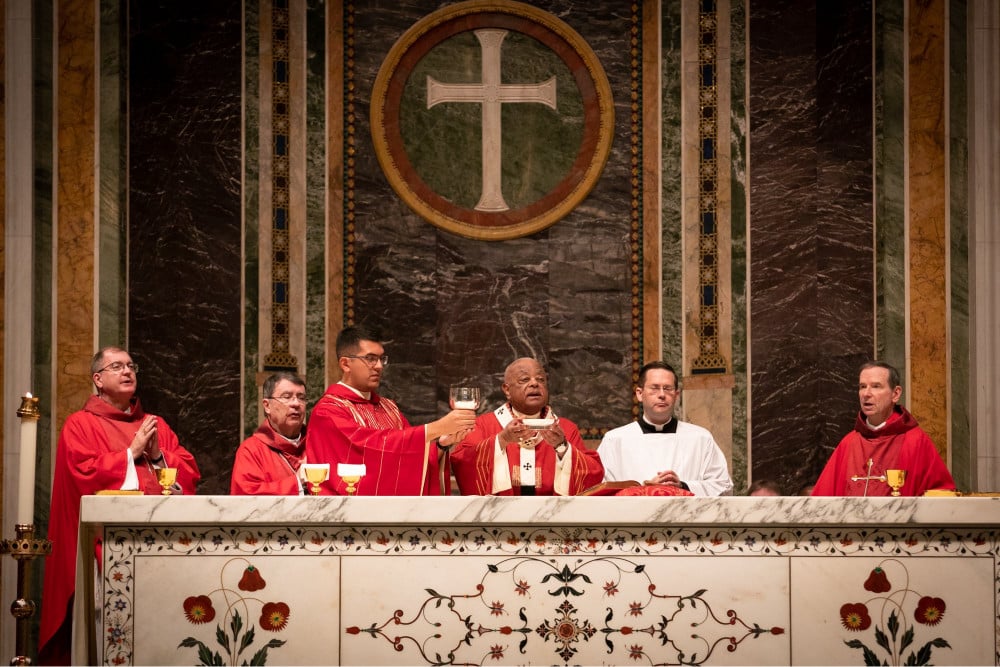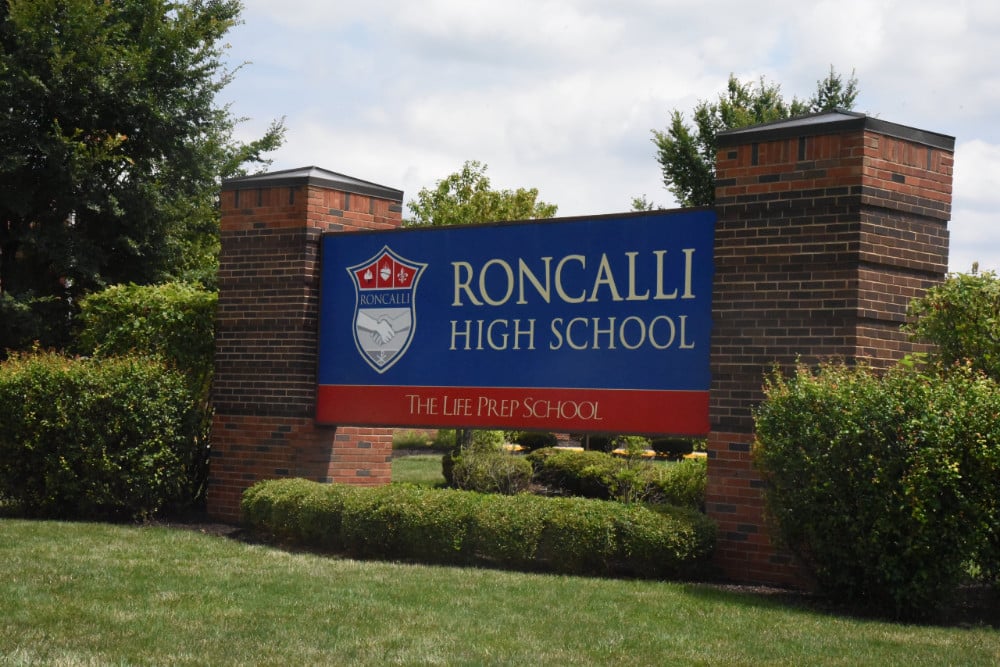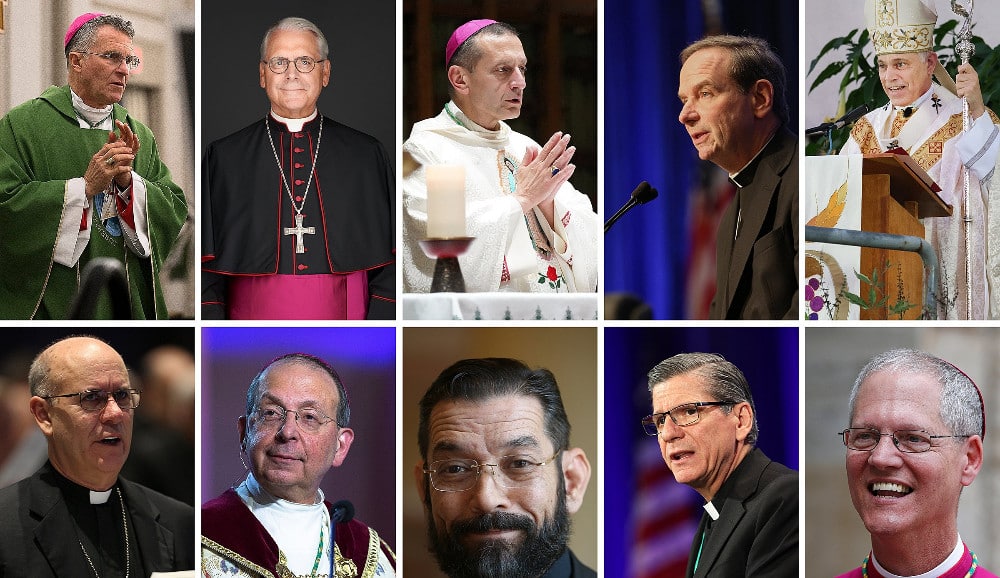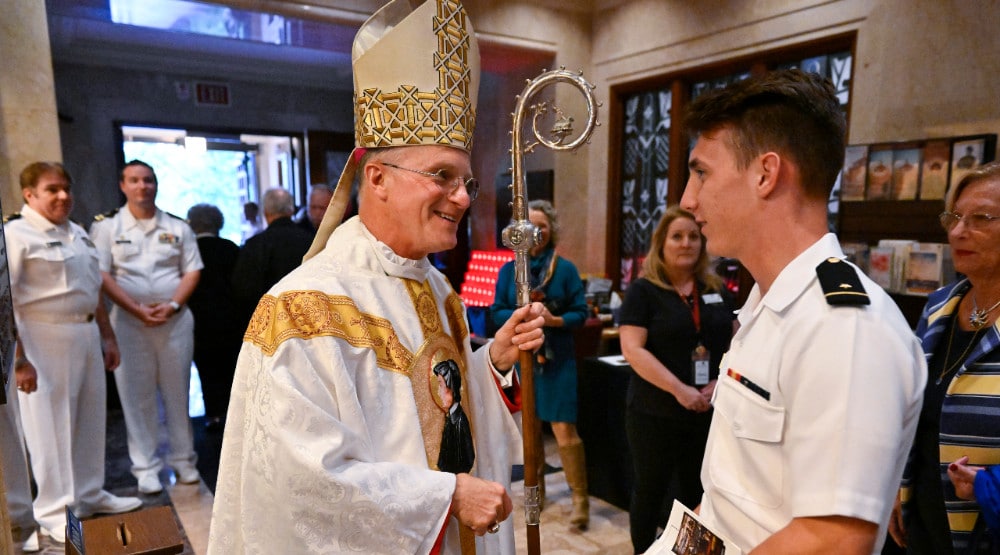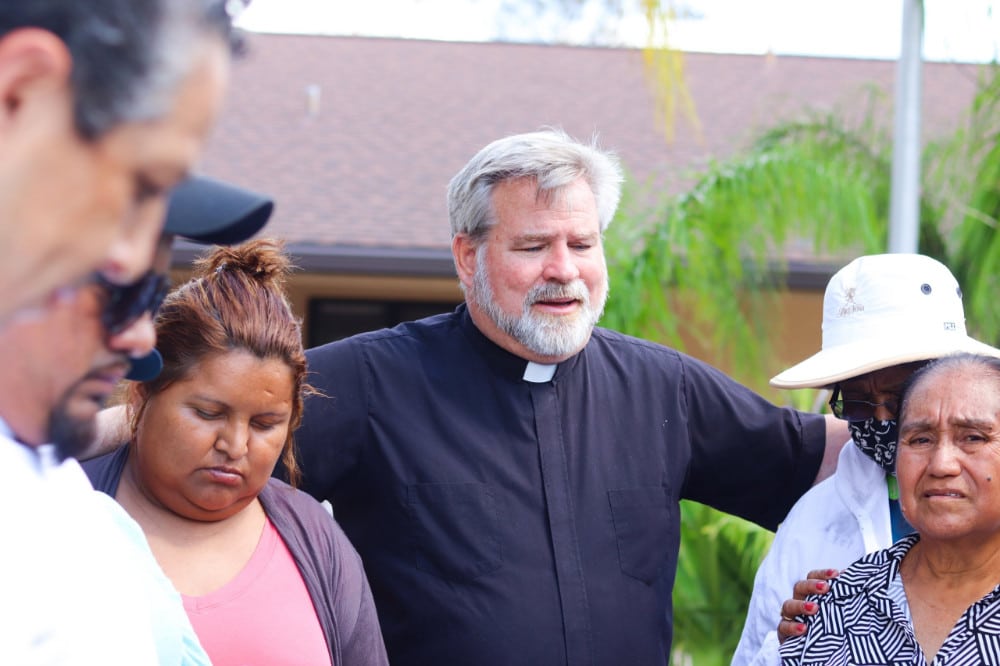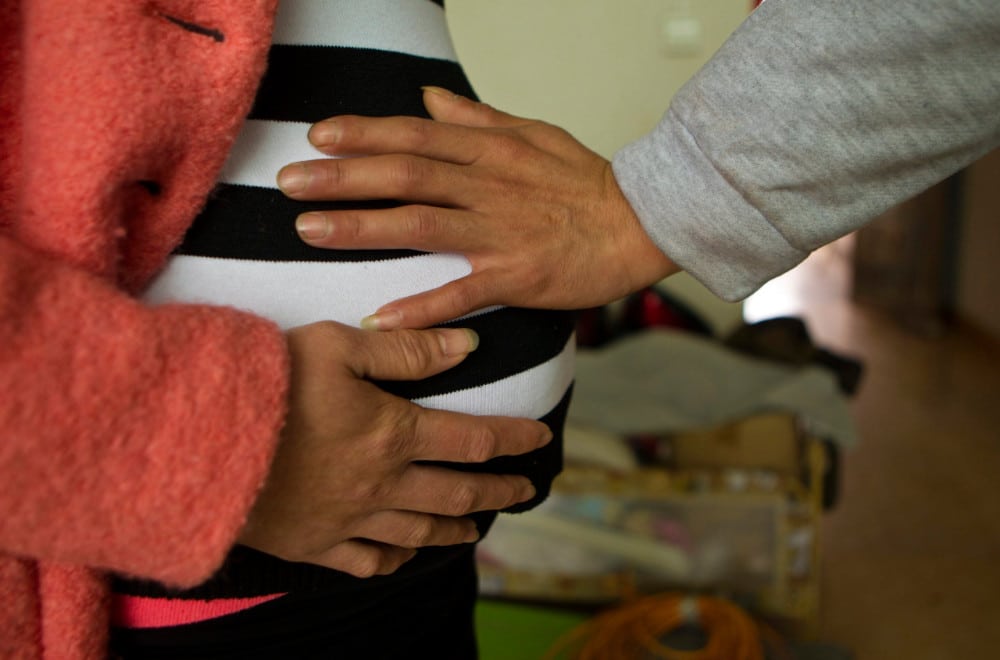Five months ago, a 19-year-old man walked into Robb Elementary school in Uvalde, Texas, and murdered 19 fourth graders and two teachers. Texas is no stranger to mass shootings. When I was little, there was a shooting at a Luby’s Cafeteria in Killeen that killed 23 people and injured 27 others. That was back in 1991. Twenty-five years before that, in 1966, a shooter killed 14 people and injured 31 on the campus of the University of Texas in Austin.
When I heard the heartbreaking news of the poor kids and their teachers who were killed in Uvalde, I already knew exactly who was going to post what argument on social media — the same old arguments about mental health, gun laws, politicians running against each other yelling at a press conference; the same drama plays out online every time innocent people are gunned down.
In the aftermath of the Uvalde shooting, one thing in particular — one man — stood out to me: the media coverage of the archbishop of San Antonio, Gustavo García-Siller. From the moment I heard about the shooting, I knew a lot of people in the Uvalde community were Catholic. I am a native Texan, and I grew up a few hours from Uvalde. In fact, I learned recently that my great-grandmother was born there. I knew the parish community in that small town would be in desperate need of support. What I did not know was the father and shepherd they had in Archbishop García-Siller.
I recently had a phone call with the archbishop to talk about his experience of walking with the Uvalde community after such a horrible event — his gentle accompaniment and compassionate leadership. The conversation was a blessing; he is easy to talk to, and his sincerity is comforting. When I asked him what he felt he had to do as the head of the archdiocese after hearing the news of the shooting, he told me that he did not decide to go to Uvalde as the archbishop of San Antonio but as a person. “It is very important to be there,” he said, adding that the need to go to Uvalde reminded him of the song we sing on Good Friday, “Were You There (When They Crucified My Lord).” He said the need to tend to these people was simply about being present to them. “I was not thinking, ‘I am the archbishop,'” he said, “it was to be there for the people.”
After arriving in Uvalde just hours after the shooting took place, Archbishop García-Siller went to the civic center where the parents were told to go to be reunified with their children. After hours had passed, he said it was obvious which parents were going to be told their children did not make it. The archbishop was there with his people. He prayed with them and waited with other faith leaders, all of whom, he said, had a sense of collaboration to support the parents who were waiting to hear news about their children.
While at the civic center, the archbishop said he spoke with Joe Garcia, husband Irma Garcia, one of the two teachers who had been killed at Robb Elementary. Just two days after the shooting, stricken with grief, Garcia died of a heart attack — another tragic casualty of the shooting. In the days following, Archbishop García-Siller met with their children, now left without parents. He said he didn’t know what to say, so he began by asking the oldest child if conversations had been had with the younger siblings about what had happened. His prompting gave the four siblings a chance to discuss the tragedy. The archbishop was present, but he said he did not say much because he wanted them to be able to talk to each other. He did tell them that the shooter’s mother had reached out to him and he was going to meet with her. He wanted to be honest and transparent with them about that. He asked them if they could pray for the encounter, and they said they would.
Archbishop García-Siller believes that prayer is where we can meet, where we can reunite in our humanity and our shared connection as children of the Father. This was something I hadn’t considered. In any situation, we can meet each other in prayer, and God can carry the parts that are too heavy for us. We do not have to show up in every place for every person’s suffering; we simply don’t have the capacity. We are human; we have too many limitations. But God does not. In prayer, we show up, and God does the rest. Each one of us has our own gifts that we can offer in different situations, and God knows who is best equipped for those particular events and needs, but it is only God who is infinite. When we try to be God, we will become overwhelmed and burned out. In Uvalde, it was the archbishop and other faith leaders and community members whom God called to show up and be present to those who were suffering.
Archbishop García-Siller told me that after he left the civic center on the day of the shooting, he knew the community needed the Eucharist, so he decided to celebrate Mass. There were no ads or announcements; news of the Mass spread by word of mouth, and the parish church was full of people from the community who wanted — needed — to gather together and pray. With all the talk of the ongoing National Eucharistic Revival, I could not help but think about how, in this situation, Archbishop García-Siller did not rely on himself to bring healing, but on the Eucharist, which is the source and summit of our faith. That is the proper place of the Eucharist in our lives and ministries.
As someone who has grandchildren in public schools, I asked the archbishop what he thought about people who are justifiably concerned about the safety of their children at school. He said, “Each community has its own characteristics, but what I can say is isolation is not the answer — or overprotection.” To me, that meant that we need to rethink our reaction as parents and grandparents to want to protect our children and grandchildren by keeping them home to avoid the dangers of the world. The real danger is found in the lack of compassion in our society — and the lack of authentic relationships — and isolating ourselves or those we love will only contribute to those problems. The archbishop said it is important for leaders of groups — parishes, schools and any other places in the community — to build trust, “because there is so much misinformation that leads people to be afraid, and fear paralyzes people.” He said: “Trust frees people. With freedom, people will come together to resolve issues. For us, it was the Eucharist where we are united.”
I saw how the grief over the shooting transitioned to anger (this is something that happened to me personally), so I asked Archbishop García-Siller about the shooter and his family. The grandmother was his first victim (she survived). For me, the hardest part of our faith is that we cannot dehumanize people who do horrific things, including the shooter in Uvalde. It would be easier, in some way, I think. As Christians, we do not have to know his story, nor come to fully understand why he did something so awful, but we are called to recognize his humanity and pray for his soul and his family. That is not easy for me, so I asked the archbishop for guidance, and he said that the faith leaders prayed for the shooter’s family, and he met with his mother and grandmother and reminded them that God’s love is for everyone. That is the simplest and hardest answer. But for Catholics, it is the only answer.
Archbishop García-Siller’s example is a reminder that expressing our faith does not mean denying the realities of suffering. Much of what he had to say applied to my own life and leadership. It is not only priests and bishops who are leaders in our Church; we all are, and we are all capable of being leaders in our communities, as well — especially, but not only, in times of tragedy. Like the archbishop, we can show up with those who are suffering and be present to them in their time of need. We can help facilitate a healing conversation among those who have lived through something difficult, and we can be models of Eucharistic living by reminding those struggling with pain and grief and anger that Christ is the ultimate healer. This work shouldn’t fall only on the shoulders of our ordained leaders; we all share in this responsibility. We simply need to show up — not with personal or political agendas, but as instruments of God’s love and mercy.
Leticia Adams writes from Texas.

